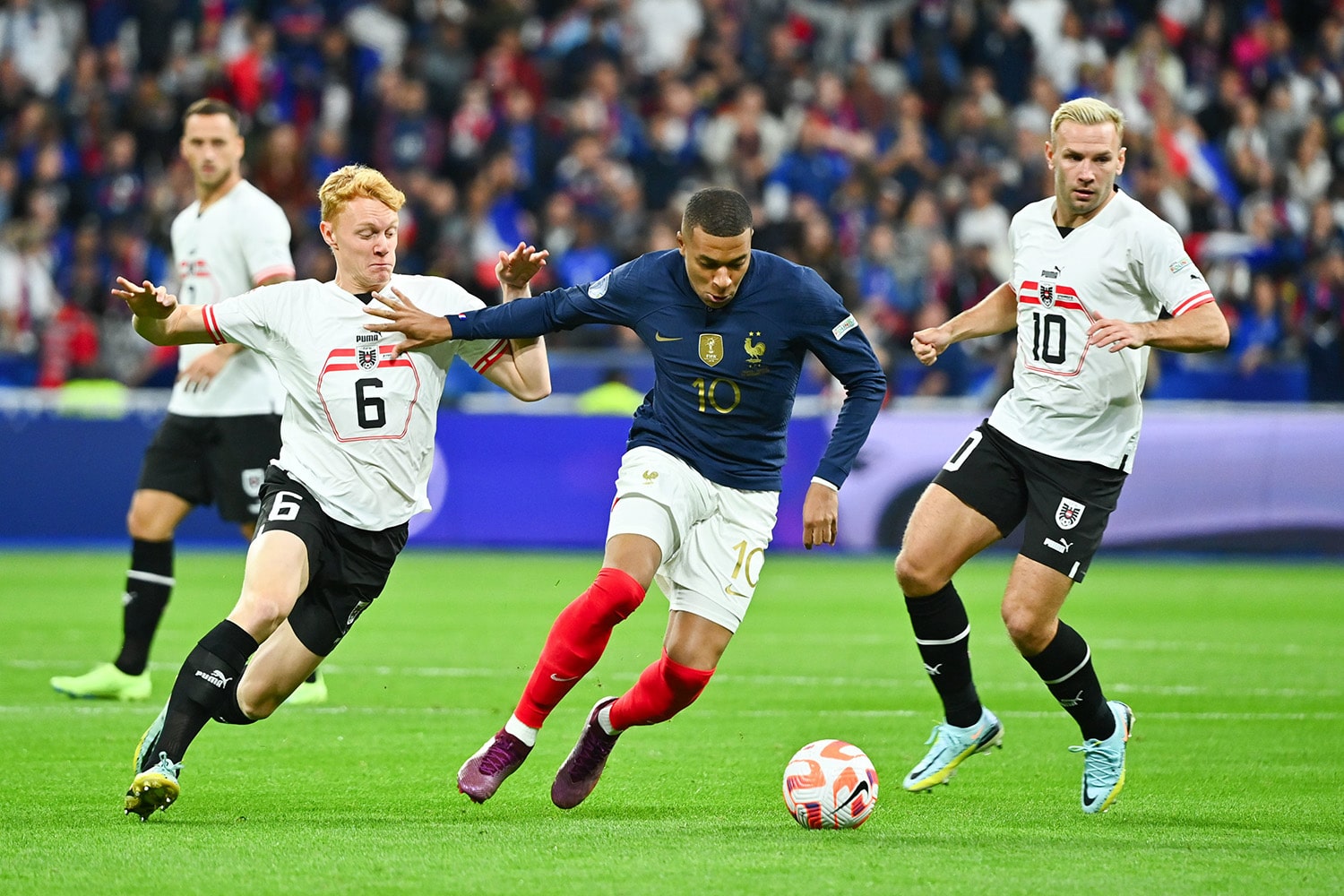
The 12-Yard Crucible: A Statistical Analysis of Crucial Penalty Misses
The penalty kick in football is a theatre of pure, unadulterated drama. A single moment, 12 yards from glory or despair, where an entire match, a season, or even a career can pivot on the swing of a leg. It is a microcosm of the sport’s brutal beauty, distilling complex strategies and ninety minutes of exertion into a binary outcome: goal or miss. While the vast majority of penalties are converted, it is the crucial misses that etch themselves into the collective memory, often defining players, teams, and even nations for years to come. This article delves into the statistical and psychological landscape of these agonizing moments, examining why they occur, their immediate and long-term impact, and the enduring legacy of the players who bear their weight.
The Anatomy of Pressure: Why Penalties Are So Hard
Statistically, a penalty kick is football’s most potent scoring opportunity. Data from various leagues and tournaments typically shows a conversion rate ranging from 75% to 85% for penalties taken during regulation time. This figure, however, masks the profound psychological burden that accompanies the "crucial" penalty – those taken in shootouts, cup finals, or moments of extreme do-or-die significance. In these high-stakes scenarios, the success rate demonstrably drops, sometimes falling below 70%.
The unique pressure arises from several factors:
- Isolation: Unlike any other moment in football, the penalty taker is utterly alone, the focal point of thousands in the stadium and millions watching worldwide. Every eye is on them, magnifying the sense of responsibility.
- Binary Outcome: There’s no hiding place. It’s either a goal or a miss, with little room for nuance or a "good effort."
- Time: While seemingly instantaneous, the walk to the spot, the placement of the ball, and the long, silent moments before the kick can feel like an eternity, allowing anxiety and negative thoughts to fester.
- Expectation: The expectation is almost universally that the penalty will be scored. Missing, therefore, feels like a betrayal of this fundamental assumption.
Psychological studies on performance under pressure, often referencing "choking" phenomena, shed light on why even elite athletes falter. The brain, overwhelmed by cognitive load and anxiety, can experience a breakdown in motor control. This can manifest as overthinking, leading to hesitation, or a "yips"-like condition where the body fails to execute a routine movement. Players might revert to more primitive, less effective techniques, or their perception of the goal might literally shrink under duress.
Iconic Misses: The Immediate Aftermath
History is replete with examples of crucial penalty misses that altered the course of footballing narratives. Each miss carries its own unique flavour of agony and impact:
-
Roberto Baggio (Italy vs. Brazil, 1994 FIFA World Cup Final): Perhaps the most iconic and heartbreaking miss in World Cup history. With the shootout tied and Baggio needing to score to keep Italy’s hopes alive, his shot sailed high over the bar. The image of the "Divine Ponytail" standing head bowed, hands on hips, while Brazil celebrated, is seared into the minds of football fans. The immediate impact was Italy’s World Cup defeat and Baggio, despite his heroic performances throughout the tournament, became synonymous with that single, agonizing moment. For years, it overshadowed his immense talent and achievements.
-
Gareth Southgate (England vs. Germany, UEFA Euro 1996 Semi-Final): Another miss that resonated deeply, particularly within a nation starved of international success. Southgate’s tame effort was saved by Andreas Köpke, sending Germany to the final and England crashing out on home soil. The immediate aftermath was one of national despair, amplified by a feeling of "it’s coming home" that had gripped the country. Southgate, a young defender, bore the brunt of the immediate disappointment, famously appearing in a pizza advert making light of his miss.
-
David Beckham (England vs. Portugal, UEFA Euro 2004 Quarter-Final): Leading his country in a crucial Euro 2004 shootout, England’s captain and talisman, David Beckham, slipped on the run-up and blazed his shot high over the bar. Though England went on to lose the shootout, Beckham’s miss was a crushing blow, especially given his impeccable reputation as a dead-ball specialist. The immediate feeling was one of shock and disbelief that even "Golden Balls" could succumb to such a moment.
-
John Terry (Chelsea vs. Manchester United, 2008 UEFA Champions League Final): In a rain-soaked Moscow, Chelsea captain John Terry had the chance to win the Champions League for his club with the final kick of the shootout. He slipped on his run-up, sending the ball against the post. Manchester United then went on to win. The immediate devastation for Terry and Chelsea was immense, epitomizing the fine line between glory and despair. Terry’s tears on the pitch became an enduring image of that night.
These misses, while distinct, share common threads: the immediate, profound disappointment for the player, the crushing blow to their team’s aspirations, and the indelible mark left on the collective consciousness of fans.
Statistical Deep Dive: Unpacking the Trends
Beyond the anecdotal, what do the numbers tell us about crucial penalty misses?
- Conversion Rates in Shootouts: As mentioned, penalty shootout conversion rates are generally lower than those in normal play. Analysis of major tournaments (World Cups, Euros, Champions League) shows rates hovering around 70-75%. This drop is a direct indicator of increased psychological pressure.
- The Goalkeeper’s Role: While much focus is on the kicker, the goalkeeper plays a significant role. Studies have shown that goalkeepers who stand still for longer before diving, or who appear more confident, can subtly influence the kicker. A successful save often feels like a heroic act, while a miss is solely attributed to the kicker.
- Shot Placement Trends: Under pressure, players often opt for power over precision, or aim for the top corners, believing it’s harder for the keeper to save. However, this can also lead to more shots going over the bar or wide. Some research suggests players are more likely to miss high and wide under extreme pressure due to an over-exertion of effort.
- Order of Kicks: In a shootout, the pressure tends to escalate with each subsequent kick. The player taking the fifth penalty, especially if it’s a decider, faces immense pressure, potentially contributing to a lower success rate for those final kicks.
- Foot Dominance: While not a definitive predictor, some analyses suggest a slightly higher miss rate for players kicking with their non-dominant foot under pressure, although top professionals train extensively for this.
- Experience vs. Youth: While experience might suggest better composure, even seasoned veterans succumb to pressure. The examples of Baggio and Beckham demonstrate that no player, regardless of their standing or experience, is immune.
The Long Shadow and the Path to Redemption
A crucial penalty miss often casts a long shadow over a player’s career. It can become a defining moment, a millstone around their neck. The media scrutiny is intense, and fans, while often forgiving, rarely forget. Yet, for many, it also serves as a crucible, forging resilience and a steely determination.
- Roberto Baggio: Despite the 1994 miss, Baggio continued to be one of the world’s most captivating players, scoring incredible goals and winning trophies. He later scored crucial penalties for his club sides, showcasing his mental fortitude. While the World Cup miss remained part of his narrative, it never diminished his legend in the eyes of true football aficionados.
- Gareth Southgate: His Euro 96 miss became a source of self-deprecating humour and a powerful lesson in resilience. Decades later, as England manager, Southgate consciously addressed the psychological burden of penalty shootouts, using data and mental preparation to help his team overcome previous failures. His guidance led England to their first World Cup semi-final in 28 years and a Euro final, symbolically conquering the very demons he once faced. His journey is a testament to turning personal adversity into collective strength.
- David Beckham: Beckham’s career is a masterclass in redemption. He famously scored a penalty against Argentina in the 2002 World Cup, exorcising the ghost of his 1998 red card and 2004 Euro miss. His leadership and unwavering determination made him an icon of resilience, proving that one moment of failure does not define a career.
- Harry Kane: The England captain’s penalty miss in the 2022 World Cup Quarter-Final against France, which would have equalized the game, was a crushing blow. Coming after he had already converted one earlier in the match, it highlighted the unpredictable nature of pressure. While the immediate aftermath was one of personal and national heartbreak, Kane, like those before him, will inevitably face the challenge of overcoming this setback and continuing to lead his country.
Conclusion
The penalty spot is football’s most unforgiving arena. It demands not only technical precision but also an extraordinary level of mental fortitude. The statistics confirm that under the immense glare of a crucial moment, even the most accomplished players are susceptible to error, with conversion rates dropping significantly. These misses are not merely statistical anomalies; they are moments of profound human drama, instantly creating heroes and villains, triumph and despair.
Yet, the stories of players like Baggio, Southgate, and Beckham also offer a powerful counter-narrative: that failure, while painful, is not necessarily final. It can be a catalyst for growth, a lesson in resilience, and ultimately, a part of a larger, more complex legacy. The 12-yard crucible remains the ultimate test, a stark reminder that even in a team sport, the weight of a nation can sometimes rest on the shoulders of one individual, in one fleeting, unforgettable moment.



